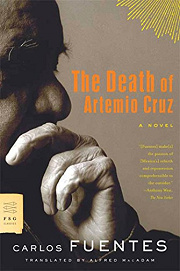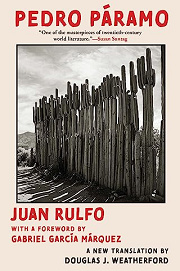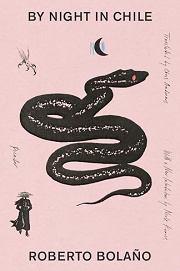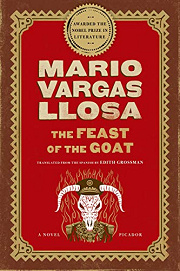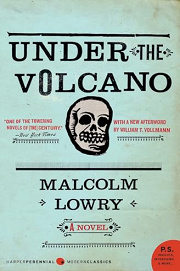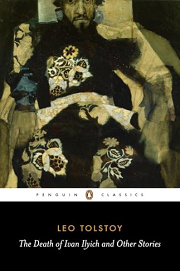Share your thoughts in a quick Shelf Talk!
The Death of Artemio Cruz by Carlos Fuentes
“On the edge of life and haunted by the choices that built his empire, a powerful man recalls a Mexico shaped by revolution, love, and betrayal. Through shifting voices and piercing memory, The Death of Artemio Cruz lays bare the cost of power and the fragile truths we tell ourselves to survive.”
Have you read this book? Share what you liked (or didn’t), and we’ll use your answers to recommend your next favorite read!
Love The Death of Artemio Cruz but not sure what to read next?
These picks are popular with readers who enjoyed this book. Complete a quick Shelf Talk to get recommendations made just for you! Warning: possible spoilers for The Death of Artemio Cruz below.
In The Death of Artemio Cruz, did you enjoy ...
... the fractured, time-scrambling structure and shifting voices?
Pedro Páramo by Juan Rulfo
If the way The Death of Artemio Cruz ricochets between the "you" on the deathbed, the confessional "I," and the distant "he" pulled you in—especially as Artemio slips from his hospital room into memories of Regina, Catalina, and the revolution—then Pedro Páramo will feel like a haunting echo. Rulfo’s Comala is a chorus of the dead, where past and present fold into each other the way Artemio’s fevered recollections do, and every voice reveals another shard of corruption, love, and loss.
... a compromised protagonist whose confessions blur guilt and self-justification?
By Night in Chile by Roberto Bolaño
If you were captivated by Artemio’s morally tangled self-portrait—how he justifies land grabs, a rigged press empire, and betrayals even as memories of Regina and Lorenzo won’t let him rest—Bolaño’s nocturnal monologue will hit home. A dying priest and critic unspools his own complicity with power, defending himself even as he reveals the rot, much like Artemio’s final reckoning that never fully repents.
... the ruthless backroom power plays and betrayals of revolutionary aftermath?
The Feast of the Goat by Mario Vargas Llosa
If the ruthless jockeying and deal-making that turn Artemio from revolutionary foot soldier into kingmaker fascinated you—the way he leverages newspapers, land, and favors—Vargas Llosa’s portrait of Trujillo’s regime delivers that same cold-blooded calculus. The conspirators, cronies, and survivors maneuver with the same mercenary instinct Artemio honed after the revolution’s ideals curdled into influence and cash.
... the claustrophobic descent into a mind at war with itself?
Under the Volcano by Malcolm Lowry
If Artemio’s fevered, intimate spirals—the gasping second-person body, the first-person bursts of desire and regret, the memories of Catalina and the son he couldn’t save—kept you rapt, Lowry’s Day of the Dead in Quauhnahuac offers a similarly intense immersion. The Consul’s inner collapse, filtered through drink, love, and self-sabotage, parallels Artemio’s psychological unravelling as past choices close in.
... the unflinching, deathbed confrontation with meaning and regret?
The Death of Ivan Ilyich by Leo Tolstoy
If Artemio’s final hours—those stark scenes of the dying man arguing with his own body while sifting through a lifetime of convenience, betrayal, and lost tenderness—moved you, Tolstoy’s novella offers a pure, piercing variant. Ivan Ilyich, like Artemio, faces the void and weighs a life built on status against the possibility of a truer, humbler meaning.
Unlock your personalized book recommendations! Just take a quick Shelf Talk for The Death of Artemio Cruz by Carlos Fuentes. It’s only a few questions and takes less than a minute.
